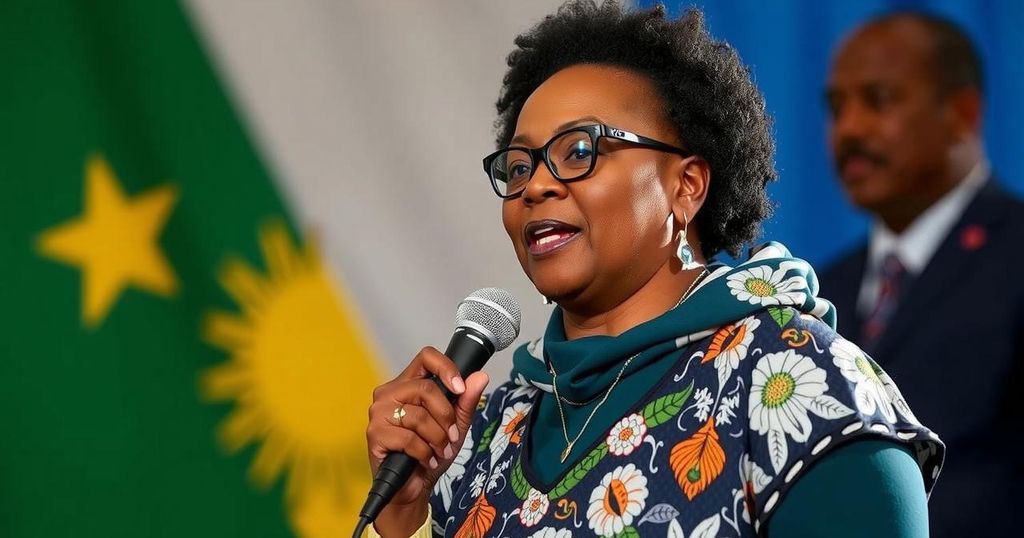Netumbo Nandi-Ndaitwah has been elected Namibia’s first female president, winning 57% of the votes in an election that extends Swapo’s 34-year rule. Opposition parties have contested the election’s validity due to technical issues, while Nandi-Ndaitwah’s previous roles include vice-president and foreign minister. This victory reflects a significant moment in Namibian history amidst broader trends affecting liberation movements in southern Africa.
Namibia has made history by electing its first female president, Netumbo Nandi-Ndaitwah, who was declared the victor in an election that solidifies the ruling Swapo party’s dominance for 34 years. Nandi-Ndaitwah, who previously served as vice-president, secured 57% of the votes, exceeding predictions that suggested she would require a runoff. The Swapo party has been in power since Namibia’s independence from South African apartheid in 1990. “The Namibian nation has voted for peace and stability,” Nandi-Ndaitwah stated following the announcement of the official results.
At 72 years old, Nandi-Ndaitwah has a long-standing history with the Namibian independence movement, including significant involvement in the 1970s. Her political ascent included a transition from foreign minister to vice-president in February, after the unexpected death of President Hage Geingob while in office. However, the elections were fraught with contention, as opposition parties contest the validity of the results, citing widespread technical issues, such as ballot shortages, which led to an extension of voting until Saturday. They assert that this extension was improper and are preparing to challenge the outcome legally.
Panduleni Itula, who ran as an independent candidate after previously being a candidate with the IPC party, garnered 25.5% of the votes—significantly lower than his previous 29% in the last election. Notably, Nandi-Ndaitwah also exceeded her party’s overall performance, with Swapo receiving 53% of the parliamentary vote, a decrease from 65% in 2019. Unlike many other leaders in southern Africa facing youth-driven discontentment, Nandi-Ndaitwah has navigated the political landscape without becoming enmeshed in corruption scandals that have affected her party’s reputation.
Her election stands as a significant example against the backdrop of incumbent liberation movements in the region facing popular dissent, evidenced by the recent electoral setbacks experienced by the African National Congress in South Africa, the decline of Botswana’s ruling party, and unrest in Mozambique due to contested elections.
The election of Netumbo Nandi-Ndaitwah as Namibia’s first female president is a pivotal moment in the nation’s political history. The Swapo party, which has governed Namibia since it gained independence from apartheid South Africa in 1990, continues to wield substantial influence, evidenced by this electoral victory. Nandi-Ndaitwah’s leadership is significant not only for gender representation but also for its stability in a region where younger voters are frequently disillusioned by long-standing ruling parties. Her background in the liberation movement and her resolution to maintain ethical governance offers a contrast to the corruption challenges faced by many contemporary African leaders.
In conclusion, the election of Netumbo Nandi-Ndaitwah as Namibia’s first female president marks a historic and transformative moment for the country, showcasing a continuation of Swapo’s governance while simultaneously breaking gender barriers. However, the allegations of electoral irregularities and opposition challenges signify ongoing tensions within Namibia’s democratic processes. As Nandi-Ndaitwah embarks on her presidency, the nation’s political landscape remains watchful of both her leadership and the responses from dissatisfied constituents and opposition factions, particularly in the context of regional political currents favoring change.
Original Source: www.theguardian.com






